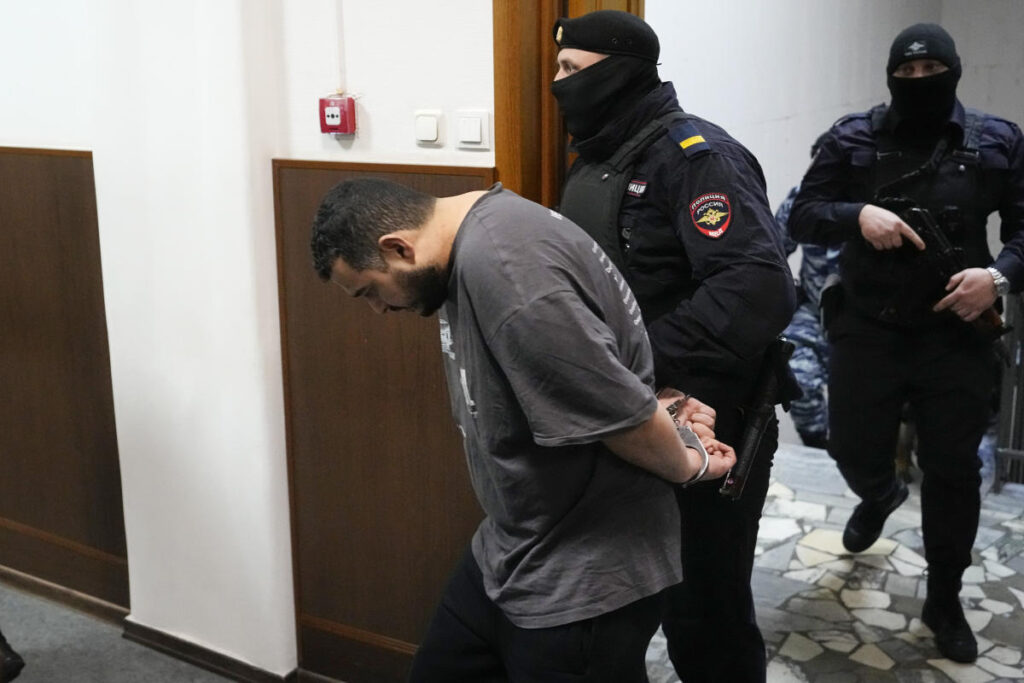A significant incident has unfolded in Moscow, where an Uzbek citizen, Akhmadzhon Kurbonov, has been charged with the assassination of Lt. Gen. Igor Kirillov, a senior Russian military figure. The bombing, which involved a homemade explosive concealed on an electric scooter, resulted in the deaths of Kirillov and his assistant, Ilya Polikarpov. Russian authorities have linked Kurbonov to Ukrainian operatives, alleging that he acted under the direction of Ukraine’s security services (SBU) to execute this assassination. In light of the severity of the charges, a Moscow court has ordered Kurbonov’s detention until at least February 17, and the charges against him include murder, terrorism, and illegal explosives manufacturing.
The attack on Kirillov, who led Russia’s Radiation, Biological and Chemical Protection Forces, occurred shortly after the SBU initiated its own criminal investigation into him for his involvement in directing the alleged use of chemical weapons during the ongoing conflict in Ukraine. Kirillov had previously come under scrutiny and was subject to sanctions from several nations, including the UK and Canada, due to his role in the military’s actions during Russia’s full-scale invasion of Ukraine. This context adds layers of complexity to the motivations and implications surrounding his assassination.
Kurbonov’s detention came swiftly after the bombing, with Russian security services identifying him based on his connections to Ukrainian operatives. Reports indicate that he was promised significant rewards for his actions, which included a financial incentive of $100,000 and resettlement in an EU country upon successful completion of the operation. The Federal Security Service (FSB) has accused Kurbonov of carefully planning the attack by using a rented vehicle to monitor the scene while relaying live footage to his Ukrainian handlers, demonstrating a calculated approach to the assassination.
The bombing’s execution involved the placement of a homemade explosive device on an electric scooter situated outside Kirillov’s apartment building. As Kirillov exited, the device was detonated, resulting in his death and that of Polikarpov, emphasizing the operational precision of the attack. The FSB’s claims suggest a web of espionage and international intrigue, where Kurbonov is portrayed as a mercenary figure caught in a larger geopolitical conflict between Russia and Ukraine.
In the aftermath, Ukrainian officials have acknowledged their involvement, describing Kirillov as a legitimate target due to his position and actions during the war. They assert that such targeted operations are necessary in the face of ongoing military aggression and violations of international norms. The discourse surrounding this assassination touches upon the broader themes of warfare, morality, and the legal ramifications of employing extrajudicial tactics in conflict situations, challenging traditional notions of combat and accountability in modern warfare.
As tensions between Russia and Ukraine continue to escalate, the ramifications of this event are likely to provoke further confrontations and retaliatory measures. The assassination may be viewed by Ukraine as a calculated strike against a figure it deems responsible for war crimes, while Russia is expected to respond vehemently to what it perceives as an affront to its sovereignty and security. The implications for international relations remain significant, and the incident serves as a vivid reminder of the ongoing conflict characterized by lethal engagements, espionage, and evolving military strategies in the region.

